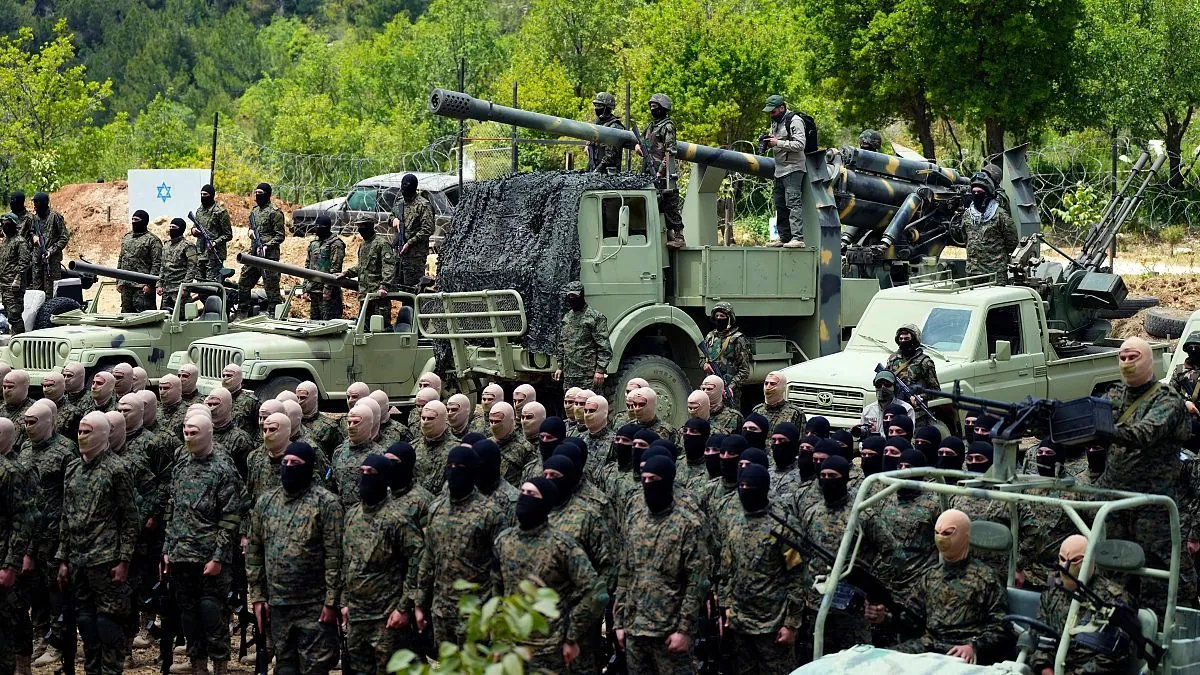Recent Israeli military actions have dealt a significant blow to Hezbollah, challenging long-held perceptions of the organization's invincibility and regional influence. The strikes, which resulted in the death of Hezbollah leader Hasan Nasrallah, have exposed critical vulnerabilities in the group's structure and strategy.
Hezbollah, founded in 1985 as a resistance movement against Israeli occupation of southern Lebanon, has long been considered a formidable force in the Middle East. With an estimated 25,000-50,000 fighters and substantial support from Iran, the organization has played a significant role in Lebanese politics and regional conflicts.
However, the recent Israeli offensive has called into question Hezbollah's ability to deter attacks against Lebanon and its sponsor, Iran. The organization's vast arsenal, including precision missiles capable of striking deep into Israel, had previously been viewed as a strong deterrent against Israeli aggression.
Lina Khatib, an associate fellow at London's Chatham House think tank, stated, "Hezbollah had an inflated sense of itself that has now been exposed to be a facade." This assessment highlights the organization's overestimation of its capabilities and underestimation of Israel's willingness to engage in conflict.
The Israeli strikes have targeted Hezbollah's communications network, top commanders, and even its leader, who was believed to be in a secure bunker in Beirut's southern suburbs. These attacks have demonstrated Israel's deep intelligence penetration of the organization, raising concerns about Hezbollah's operational security.
Despite these setbacks, analysts caution against prematurely declaring Hezbollah's demise. The group remains the most powerful political and military force in Lebanon, where economic collapse has left few challengers. Mohanad Hage Ali of the Beirut-based Carnegie Middle East Center noted that Hezbollah will likely retain the loyalties of Lebanese Shiites, many of whom revered Nasrallah.
The conflict has taken a significant toll on Lebanese civilians. Over 1,000 Lebanese have been killed in Israeli strikes in the past week, with at least 87 children among the casualties. More than 110,000 people have been displaced, fleeing to Beirut and Syria.
Hezbollah's response to these attacks has been largely ineffective, with most of its missiles being intercepted by Israeli defenses. This has further eroded the organization's image of military prowess and its claim to protect Lebanese citizens from Israeli aggression.
The current situation has placed the Middle East at a critical juncture, with the potential for either an all-out war involving Iran and the United States or the possible collapse of Hezbollah in Lebanon. Either outcome would significantly alter the balance of power in the region.
As tensions continue to escalate, the international community watches closely, aware that the resolution of this conflict could reshape the geopolitical landscape of the Middle East for years to come.
"Hezbollah's ability to command and control a significant confrontation with Israel in the near future is in severe doubt. The Israeli capability and level of penetration have exceeded everyone's expectation."
This assessment underscores the severity of Hezbollah's current predicament and the potential long-term implications for the organization and the region as a whole.
